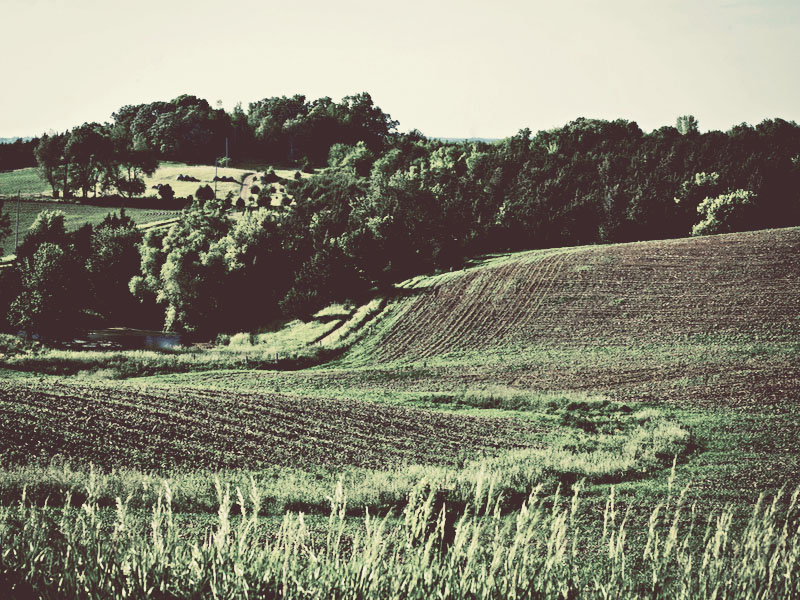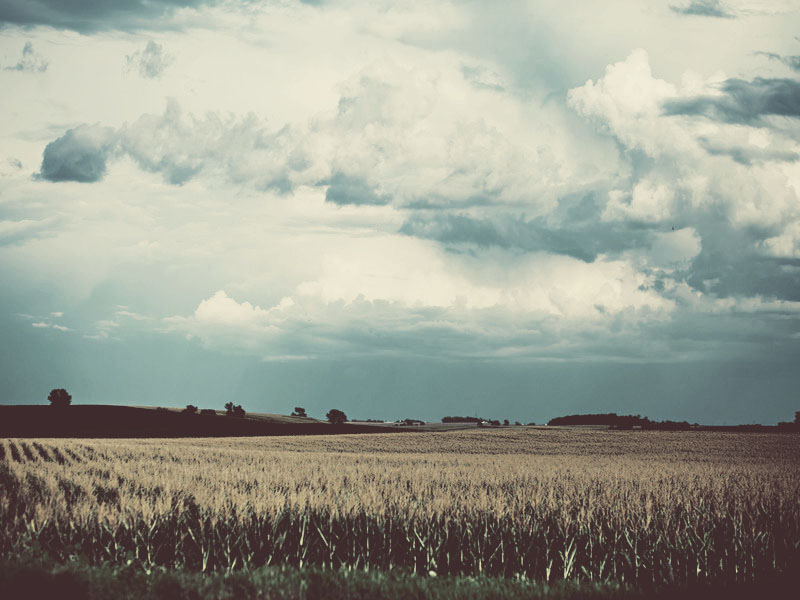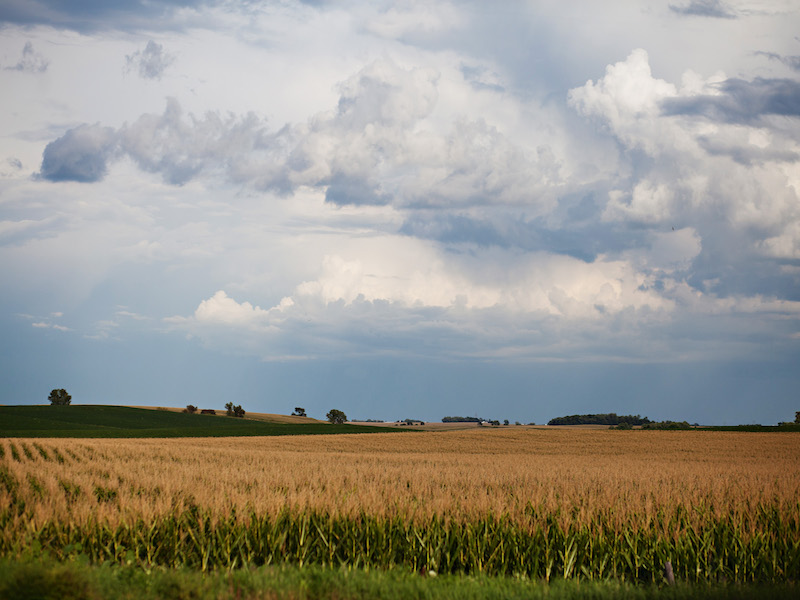My daddy was a particular kind of man. Tall, physically tough and imposing, the type of guy who had built his career out of manual labor, literally working the land, digging ditches for those “Call before you dig” signs. Emotionally hardened, stoic. Carhartts and steel toe boots and thirty-racks of Budweiser and always, a pack of Winstons in the cupholder of his Ford truck. Classic rock and fried chicken on Sunday afternoons and Nascar and college football.
The kind of man who was happy where he was, who was stuck in his ways, who voted for conservative, Far Right politicians. The kind of man who didn’t think twice about the way he talked to his wife or daughters.
The kind of man who always provided for us, who taught my sister and I how to ride a bike, how to understand pretty much every sport on the planet except soccer (because it’s not American), who put on John Mellencamp’s “Sweet Suzanne” before bed every night and twirled us around and around the living room, dancing like fools, just a daddy and his girls, before tucking us in.
I loved my daddy, but growing up, I feared him, too.
By the time I was a senior in high school, he and I found ourselves in full-blown screaming matches on a daily basis.
College was my ticket out, my ticket away from that kind of life, from getting stuck like my mama: stuck in a nowhere town, financially trapped in a no-good marriage with a man who provided for you but didn’t appreciate you.
An education was my ticket away from the country, away from small towns and small minds and the kind of masculinity that chased women like me until it choked the life out of us.
![]()
I met a man in college and, in spite of my doubts, married him anyway. He was a good Christian man from a good Christian family. City boy. He’d never been in a fist fight in his life.
I could have taken him. I had been in fist fights.
Immediately after the wedding, I moved to Boston with my decidedly non-country, non-lumberjack husband. He could not have been less like my father if he tried, in both physicality and demeanor, and that suited me just fine. I didn’t need any of that John Wayne confidence, didn’t need someone who knew how to walk into a bar and make everyone his friend without trying. Definitely didn’t need the smoking and the drinking.

So it wasn’t long, of course, before I fell in love with a woman from shitkicker Missouri, who strutted into a room full of Boston academics wearing cowboy boots and flannel, a master storyteller who spun stories that could keep huge groups in her thrall. She smoked Marlboro Lights and kept half a dozen full bottles of whiskey on the top of her fridge as a reminder not to drink them. She was the best man I’d ever met, and I told her so. When she looked me in the eye and said thank you, the subtle twang in her voice reached parts of me I thought I’d buried.
The first night we went out dancing — because I was spiraling out of my marriage, a ball of yarn coming undone — she pulled me onto her lap and asked if I loved my husband. I said yes because that’s what I was supposed to say, even as I immediately realized my honest answer should have been hell no. Couldn’t backtrack, though. We went out dancing every week after that, and she held me close, while never making a move. We’d go out driving late at night until one, two in the morning, talking and listening to country music, and when we got back to her apartment she would pull out her toolbox and fix things, all kinds of things, and make things, all sorts.
I think I thought she could make, or unmake, me, if only she was willing. Butch was a word she taught me, and she was its definition.
I divorced the city boy, and things ended badly with the Missouri woman, who, beneath her layers of flannel, insisted she didn’t feel a thing for me, that it was all in my head.
![]()
I dated furiously, women of all backgrounds — across races, presentations, body types. I would go on dates with women I met online who, once we started talking in person, were clearly from rich families, or at least ones better off than mine, women who talked of European vacations and summers on the Cape, women who had gone to college on lacrosse or rugby scholarships. Women who popped their collars, wore boat shoes, and donned pants the color of salmon or seafoam in the middle of a Boston winter.
I was a PhD student and passed, culturally, just fine, but none of these were people who could understand. I couldn’t introduce them to my family. Hell, I couldn’t get past the fact that they assumed I’d traveled to England, given my graduate work.
They couldn’t understand why I’d run a thousand miles away from home, stopped only by waves crashing against a rocky Massachusetts coast.
Even though I was in Boston, surrounded by the intellectual elite, I found women who had grown up rural working class like I had, women who drove trucks, were emotionally stalwart, women who wore Carhartts and cowboy boots and flannels, women who were comfortable with physical labor.

My first actual girlfriend, just as femme presenting as me, with long curly hair that trailed down her back in waves like a mermaid, drove me out to her family’s home, with all their land on the Connecticut border, soon after we started dating. She and her brother made a bonfire, chopping wood and stoking the flames, while her brother’s wife and I prepared food to roast over the fire.
She, with the mermaid hair and the red lacy bra, was as close to a stone top as I’ve ever dated, took me to dive bars where we shot pool (badly) with George Strait and Johnny Cash singing in the background, sought my advice when picking out a new truck.
She fell in love. I didn’t.
Home isn’t just country music and pickup trucks.
![]()
It’s women who understand how to handle land, how to take the vast empty of a quiet field into themselves.
It’s women who see my invisible cross, the one that has never entirely gone away, the ones who can smell the church on me and who say “Me, too,” these are the ones who get me to cry oh god in the holy of holies.
![]()
I met someone, a tall woman who wore men’s clothing and Oxfords and, when the weather was warm, boat shoes. This was Boston, after all. She was younger than me, from shithole Florida, from a family just as broke and fucked up as mine. She drove an old, run-down pickup, listened to bro country. On our first date, we spent four hours downing pints of well-poured Guinness, talking about what we wanted in life, how, even with our intellectual pedigrees, we both felt like outsiders in Boston.
It was obvious that she had emotional walls a mile thick and a mile high. That kind of challenge was intoxicating.
By the end of our second date, I knew I wanted to have dogs with her, and I chased her, relentlessly, until she gave in. We did get a dog, eventually. But I never quite got over her walls. She never got over mine, either. We were both Capricorns, trying to build something out of our togetherness that never quite took. It was as if, for three and a half years, we built on sand.
That ended, too.
![]()
Not all women who embrace androgyny or masculinity are butch. Not all butch and gender non-conforming folk have difficulty expressing their emotions. Not all queer women who dam up their emotions present in masculine ways — god knows I don’t. We do what it takes to survive where we are, and the woman I’m drawn to have been through wars.
I’ve been through one, too. The red lipstick masks the blood.
![]()
It has taken me years to understand that my instinctual draw to, yearning for, can’t eat can’t sleep reach for the stars over the fence World Series kind of stuff tug I feel in my gut around a certain kind of woman with a certain kind of look and a certain kind of confidence —
it’s taken me years to connect this yearning to home. And it’s taken me years to feel comfortable with the fact that, for me, butch/femme is deeply connected to — might even come from — a particular kind way I was raised.
It’s not that way for everyone; god knows it’s not. Of course it’s not. Desire, attraction, connection are individual, impossible to pattern.
But for me. For me.
![]()
It wasn’t until I moved out east that I started wearing cowboy boots and leather, kept my perfume in bullet cases, hung Johnny Cash lyrics in barn wood frames on my wall. Discovered the hardness within me. The hardness that wasn’t butch, but the hardness that was Maureen O’Hara in a John Wayne movie.
A hard femme bitch, the kind chiseled by flatline winds cutting across cornfields and toughened by deep freezes that make your bones shake.
Boston, and then New York, asked me to consider maybe, just maybe. Maybe, there’s something to the land, and all that space to breathe and expand in. Maybe.
![]()
One of the ways I judge the women I meet is how they respond to learning where I’m from. I never expected to say “I’m from the rural Midwest” in the middle of a lesbian bar in Manhattan, lifting my chin in defiance, daring the woman across from me, just daring her, to say something condescending. The Midwest, the South, the Mountain West — these places have problems, and god knows I’ve got plenty of issues with the red states that formed the person I am today, with the deeply, explicitly entrenched isms of which there are too many to list. But if you can’t tell Iowa from Idaho from Ohio, I really don’t care to hear your opinion.
Doesn’t change the fact that my parents’ home is one I can only abide for a few days at a time. It’s the reason I only go “home,” inasmuch as it’s going home, once or twice a year.
But I think about moving back west, wherever west is, nearly every day. All it takes is a minute of watching the sunset over One World Trade from my office to take me back to sunsets in rural Iowa, spiraling out for miles in every direction, unobstructed by any building, the summer heat rippling over the sweet corn and soybean fields as the sky bursts with the kinds of vibrant pinks and purples and reds and oranges New Yorkers keep bound up in nicely printed coffeetable books.
It’s not so cut and dry as to pit one state against another; of course it’s not. But there is something to the land that is inside me, that has never gone away, and it took moving to New York City for this profound ache, this grief for land and space and sky, to come pouring out of me, as swift and fierce as my queerness did nearly six years ago.
Loving women and loving the land are the two things I told myself I would never do, and somehow, they got all tangled up in each other.
![]()
Making a home out of other people is dangerous. Any kid who grew up in a home where there was more shouting than laughter is aware of this. And I’m 30 now, with an ex-husband and an ex-partner; there are too many people who I once thought would be in my life forever who aren’t anymore. Of course, they thought I’d be their person, too.
Home is a feeling I deeply crave, and it’s a feeling I’m scared to get close to.
Doesn’t mean I don’t want it, though, whatever the hell it is.
![]()
To say I like women like my father is reductive and not even remotely close to the truth — at least, not anymore. More accurate would be to say that there are qualities I was socialized to appreciate growing up in rural Iowa farm country, and then in the northwoods of Wisconsin, some of which were shared by my father but some of which weren’t, qualities I despised in the men I grew up around, qualities I criticized in my women’s studies classes in college, qualities I saw in the bravado of John Wayne’s westerns.
The protector, the provider, but also the one who was a leader, the one the community looked to when things went wrong, the one who had confidence — even swagger. The John Wayne who looked at Maureen O’Hara, the strongest, fiercest woman in the town, and said, “Why did it have to be you?” because she was the only woman who could stir their heart.
There’s masculinity in there, there’s strength there, survival there, and it turns out that women who show those characteristics — not necessarily the physical trappings, the beer drinking and the truck driving — but the character qualities, the way they hold themselves; the women I meet who are comfortable and confident with their strength and who have almost always gone through a war to get where they are, these are the women who make my heart sing.
It’s in their eyes, the quiet strength beneath the hardness, that makes me want to pull them into my skin and say, stay a while.
This is what I know: I’ve spent a lifetime running, fleeing home, burning bridges and discarding the people and places I traveled through. And yet, the women I find — the women who find me? — have bodies as smooth as the Iowa plains and crevices that feel like dropping off a Lover’s Leap into the Mississippi, sweeping me under. They carry the wind in their hair and promises on their breath and when I trace the lines of their palms,
they carry me home and home and home and home.






